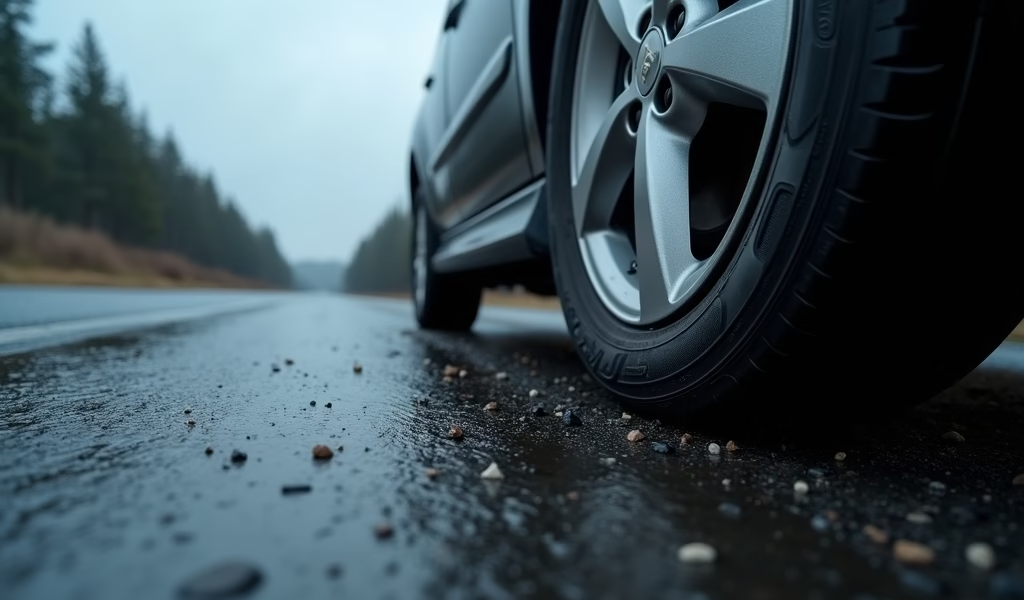Overview
This article provides seven essential car maintenance strategies including following manufacturer schedules, regularly checking fluids, proper tire care, keeping vehicles clean, practicing mindful driving habits, addressing small issues promptly, and maintaining consistent care routines. Whether for personal vehicles or rental fleets, these practices can significantly extend a car’s lifespan, improve reliability, and reduce long-term ownership costs.
Table of Contents
- Introduction
- Regular Maintenance Schedule
- Fluid Checks and Changes
- Tire Care Essentials
- Keep It Clean Inside and Out
- Mindful Driving Habits
- Addressing Small Issues Before They Grow
- Conclusion
- Frequently Asked Questions
Introduction
When you’re considering a sixth car rental or looking to maintain your vehicle, proper care makes all the difference. After spending 25 years under the hood, I’ve seen firsthand how simple maintenance routines can double a car’s lifespan. The difference between a vehicle that runs beautifully for a decade and one that breaks down after a few years often comes down to basic care practices.
Whether you’re managing a rental fleet or maintaining your personal vehicle, these seven proven tips will help extend your car’s life significantly. The beauty of proper maintenance is that it doesn’t require complex mechanical knowledge – just consistent attention to the right details.
I’ve worked with hundreds of sixth car rental customers who’ve transformed their vehicle’s performance just by following these straightforward guidelines. The best part? These tips work equally well for both your leased vehicles and owned cars.
Regular Maintenance Schedule
Your vehicle comes with a maintenance schedule for a reason – it’s the manufacturer’s roadmap to longevity. Think of it as your car’s personalized health plan rather than a suggestion.
Most modern vehicles follow a similar pattern:
- Every 5,000-7,500 miles: Oil change, tire rotation, and basic inspection
- Every 15,000-30,000 miles: Air filter, cabin filter, and brake inspection
- Every 30,000-60,000 miles: Major service including transmission fluid
- Every 60,000-100,000 miles: Timing belt/chain, spark plugs, and cooling system
I’ve seen too many customers skip these intervals to save a few dollars, only to face repairs costing thousands later. According to AAA research, regular maintenance saves an average of $100 per month in unexpected repair costs.
If you’re managing a sixth car rental service, keeping detailed service records becomes even more critical. Your renters depend on reliable transportation, and your bottom line depends on vehicles that don’t break down.

Fluid Checks and Changes
If your car is a living organism, fluids are its lifeblood. After decades in the shop, I can tell you that most catastrophic failures trace back to neglected fluids.
For a sixth car rental fleet or personal vehicle, check these critical fluids monthly:
- Engine oil: The lubricating lifeline of your engine
- Transmission fluid: Should be red, never brown or burnt-smelling
- Brake fluid: Critical for stopping power; should never feel spongy
- Coolant/antifreeze: Prevents both overheating and freezing
- Power steering fluid: Ensures smooth steering response
The simplest way to check most fluids is when the engine is cool, parked on level ground. Engine oil is the exception – check it after the engine has run for a few minutes, then shut off for five minutes.
I still remember a sixth car rental customer who ignored transmission service for 100,000 miles. The eventual repair bill? $4,800. The preventative service would have cost $250. Those aren’t odds I’d recommend betting on.
Modern synthetic oils can extend oil change intervals substantially, but I still recommend changes every 5,000-7,500 miles for most vehicles. If you’re leasing a car, maintaining fluid schedules is particularly important to avoid end-of-lease penalties.
Tire Care Essentials
Your tires are the only parts actually touching the road – four contact patches roughly the size of your palms. Their condition affects everything from fuel economy to safety.
For proper tire care, I recommend:
- Monthly pressure checks (including the spare)
- Rotation every 5,000-7,500 miles
- Alignment check annually or whenever you notice pulling
- Tread depth checks using the penny test
Tire pressure should be checked when tires are cold – before driving or at least three hours after parking. The correct pressure isn’t found on the tire itself but in your driver’s door jamb or owner’s manual.
Underinflation causes excess heat and premature wear while decreasing fuel economy. Overinflation reduces contact with the road, compromising traction and ride comfort. Either extreme shortens tire life significantly.
For sixth car rental operators, consistent tire rotation is an investment that pays dividends. A $25 rotation extends your tire life by 5,000-10,000 miles – multiplied across a fleet, the savings add up quickly.
Keep It Clean Inside and Out
A clean car isn’t just about appearances – it’s preventative maintenance. Road salt, industrial fallout, bird droppings, and tree sap all attack your paint and eventually lead to corrosion.
I recommend washing your vehicle every two weeks and more frequently in winter or coastal areas. Waxing quarterly provides an additional protective barrier against environmental damage.
Inside, regular vacuuming prevents dirt from grinding into upholstery fibers. Wipe down surfaces with appropriate cleaners – avoid harsh chemicals on leather and dashboard materials.
For sixth car rental businesses, cleanliness directly impacts customer satisfaction and vehicle residual value. A clean, well-maintained rental car commands higher rates and attracts repeat business.
Don’t forget the undercarriage – especially after winter driving. High-pressure undercarriage washes remove corrosive salt and road chemicals that accelerate rust formation where you can’t see it happening.

Mindful Driving Habits
Your driving style directly impacts your vehicle’s longevity. In my years servicing fleet vehicles, I could often tell how a car had been driven just by looking at key components.
Adopt these driving habits to extend your vehicle’s life:
- Allow the engine 30-60 seconds to warm up before driving
- Accelerate gradually, especially when cold
- Avoid hard braking except in emergencies
- Shift to neutral when stopped for extended periods
- Don’t rest your foot on the clutch or brake pedal
For sixth car rental customers, I always emphasize the importance of proper warm-up, especially in colder climates. Those first few minutes of operation are when most engine wear occurs as oil hasn’t yet reached all components.
If you’ve chosen to finance rather than lease your vehicle, these habits become even more important as you’ll likely keep the car longer.
Aggressive driving doesn’t just wear out mechanical components – it typically reduces fuel economy by 15-30% according to Department of Energy studies. That adds up to substantial savings over a vehicle’s lifetime.
Addressing Small Issues Before They Grow
The most expensive repairs I’ve seen all started as minor issues that went ignored. That strange noise, slight vibration, or occasional hesitation is your car’s way of communicating a problem.
Pay attention to these early warning signs:
- New or unusual sounds (squeaking, grinding, knocking)
- Warning lights (never ignore these)
- Fluid spots under your parked vehicle
- Changes in handling, braking, or acceleration
- Decreased fuel economy
Modern vehicles are remarkably communicative about their needs if you’re paying attention. Many sixth car rental companies now use telematics systems to catch these issues early, saving thousands in preventable damage.
A check engine light might indicate something as simple as a loose gas cap or as serious as an impending catalytic converter failure. Inexpensive code readers (under $50) can help you understand what your vehicle is trying to tell you.
My rule of thumb: if something feels or sounds different, have it checked. Small repairs rarely get cheaper by waiting, but they frequently become more expensive.
Conclusion
Whether you’re operating a sixth car rental business or maintaining your personal vehicle, these seven proven care tips will significantly extend your car’s life. The common thread among all these recommendations is consistency – regular attention prevents irregular problems.
Remember that modern vehicles are remarkably durable when properly maintained. The average age of cars on American roads is now nearly 12 years, according to IIHS data – a testament to how far automotive technology has come.
By following these straightforward guidelines, you’ll not only save money on repairs but also enjoy a more reliable, efficient, and valuable vehicle for years to come. Your sixth car rental customers will appreciate the difference, and your bottom line will reflect it.
What maintenance tip has made the biggest difference for your vehicle? I’d love to hear your experiences in the comments below.
Frequently Asked Questions
What makes sixth car rental different from other rental companies?
Sixth car rental focuses on well-maintained, longer-term vehicle rentals with flexible terms. They specialize in pristine vehicle condition and personalized service rather than the volume-based approach of larger agencies.
How often should I check fluid levels in a rental car?
Check fluid levels before any long trip and at least monthly during regular use. This quick five-minute check can prevent serious damage and ensure reliable performance.
What’s the most important maintenance item for a rental fleet?
Regular oil changes remain the single most critical maintenance item for any vehicle fleet. Fresh oil prevents engine wear and extends vehicle life more than any other single service.
Should I warm up a rental car before driving?
Allow the engine 30-60 seconds of idle time before driving, particularly in cold weather. Modern vehicles don’t need extensive warm-up, but this brief period allows oil circulation to critical components.
How can I tell if a rental car has been well-maintained?
Check the vehicle’s cleanliness, tire wear pattern, and fluid condition indicators. A well-maintained rental will have complete service records, even tire pressure, and no dashboard warning lights.

